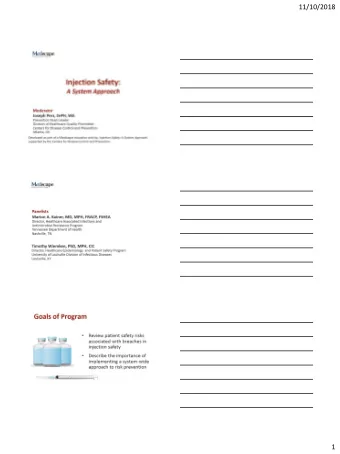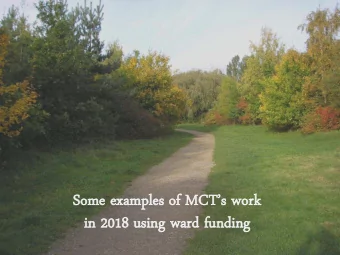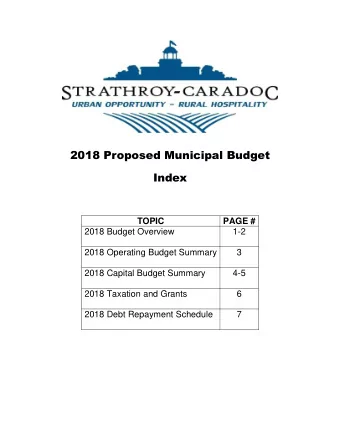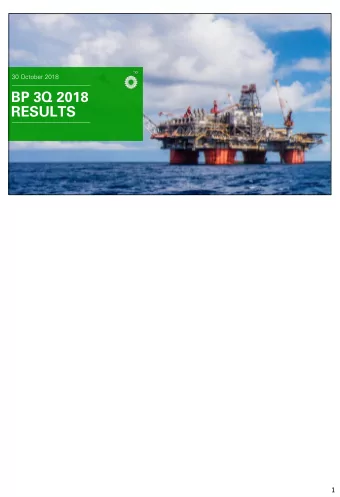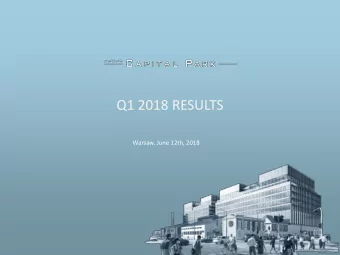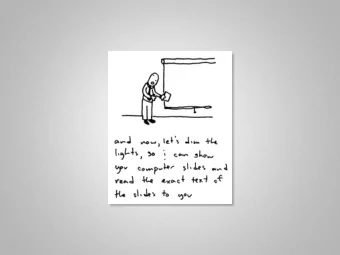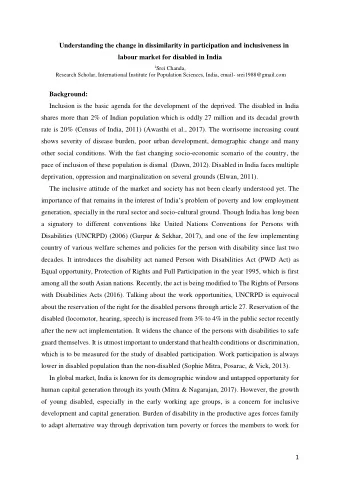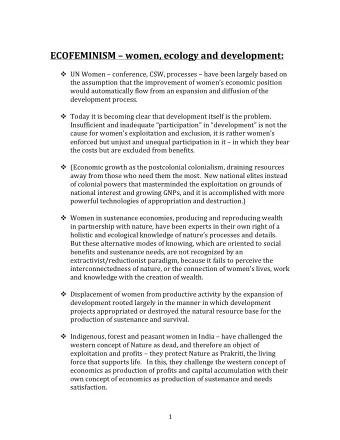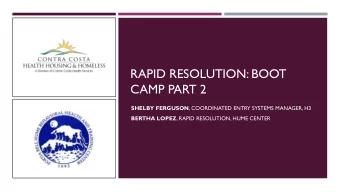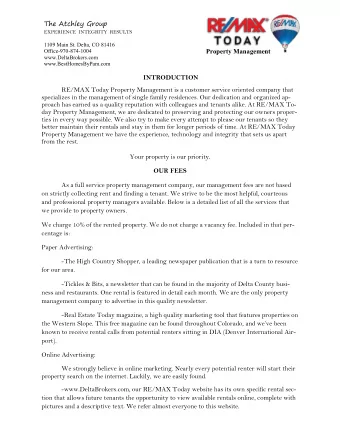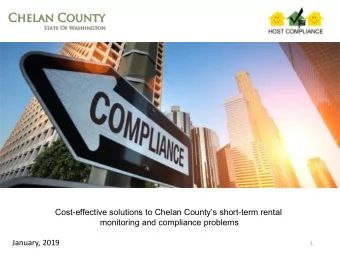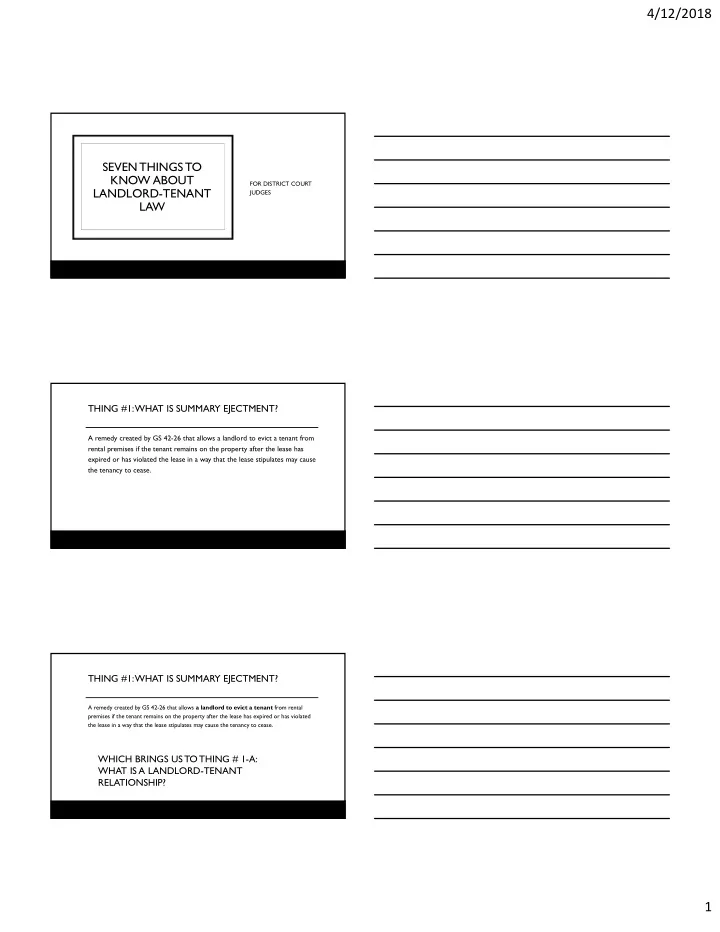
4/12/2018 SEVEN THINGS TO KNOW ABOUT FOR DISTRICT COURT - PDF document
4/12/2018 SEVEN THINGS TO KNOW ABOUT FOR DISTRICT COURT LANDLORD-TENANT JUDGES LAW THING #1: WHAT IS SUMMARY EJECTMENT? A remedy created by GS 42-26 that allows a landlord to evict a tenant from rental premises if the tenant remains on the
4/12/2018 SEVEN THINGS TO KNOW ABOUT FOR DISTRICT COURT LANDLORD-TENANT JUDGES LAW THING #1: WHAT IS SUMMARY EJECTMENT? A remedy created by GS 42-26 that allows a landlord to evict a tenant from rental premises if the tenant remains on the property after the lease has expired or has violated the lease in a way that the lease stipulates may cause the tenancy to cease. THING #1: WHAT IS SUMMARY EJECTMENT? A remedy created by GS 42-26 that allows a landlord to evict a tenant from rental premises if the tenant remains on the property after the lease has expired or has violated the lease in a way that the lease stipulates may cause the tenancy to cease. WHICH BRINGS US TO THING # 1-A: WHAT IS A LANDLORD-TENANT RELATIONSHIP? 1
4/12/2018 LANDLORD- • License. TENANT • Innkeeper-Guest. RELATIONSHIP? • Employer-Employee. • Permissive occupant after death of owner. DISTINGUISH: • Seller-buyer relationship. • Incidental occupancy. • Prior owner of foreclosed property (NOT tenants) • Guests, including adult children, whose permission revoked. EMPLOYEE OR TENANT? The occupancy is not that of servant merely because it may be in some way connected with or convenient for the contract or duties of employment; but in order to render it such, the occupancy must be reasonably necessary for the better performance of the particular service, inseparable therefrom, or required by the master as essential thereto. Simons v. Lebrun, 219 N.C. 42, 12 S.E.2d 644, 648 (1941) THING #2: THERE ARE ONLY FOUR GROUNDS FOR SUMMARY EJECTMENT. Breach of lease Statutory condition forfeiture for Holding-over. Criminal activity. triggering failure to pay forfeiture clause. rent. 2
4/12/2018 THING #2-A: THE DIFFERENCE BETWEEN: BREACH OF A LEASE CONDITION FAILURE TO PAY RENT Lease contains forfeiture clause • Lease does not contain forfeiture clause T breached lease in way that triggered forfeiture • T failed to pay rent clause • LL made a “clear & unequivocal demand” for the LL “strictly complied” with lease procedure for rent termination • T did not pay rent within 10 days after demand Common Defenses: Failure to follow procedure, Common Defenses: no demand, filed too soon, waiver waiver, tender § 42-3. T erm forfeited for nonpayment of rent. In all verbal or written leases of real property of any kind in which is fixed a definite time for the payment of the rent reserved therein, there shall be implied a forfeiture of the term upon failure to pay the rent within 10 days after a demand is made by the lessor or his agent on said lessee for all past-due rent, and the lessor may forthwith enter and dispossess the tenant without having declared such forfeiture or reserved the right of reentry in the lease. LL files for SE based on failure to pay rent, showing you a written lease requiring T to pay rent of $600 on first day of month. LL proves T failed to pay on Jan. 1 and again on Feb. 1. LL demanded rent on Jan. 2 nd , and filed this lawsuit on Jan. 18. The lease contains provisions allowing the LL to assess a $15 late fee and a one-time “eviction fee” of 12%. What amount must T tender to be entitled to remain on the property? What would you do if the LL says he’s willing to forget about the money but just wants possession? 3
4/12/2018 LL files a SE action based on breach of a lease condition, specifically failure to pay rent. Lease provides that tenant will be given written notice of breach and opportunity to cure prior to landlord filing for SE. In court, when LL realizes that the notice provided was oral rather than written, LL argues that she has proven all elements of failure to pay rent: she gave oral notice to tenant, ten days prior to filing the lawsuit, of intent to file for SE if payment was not immediately made. Do you allow LL to switch theory of recovery and prevail? Landlord and tenant enter into a written one-year lease which provides that tenant is to pay rent at the rate of $400 per month, due at the beginning of each month. The lease provides that if tenant does not pay the rent when due, there is an automatic forfeiture of the lease and the landlord may re-enter and evict tenant. On May l tenant fails to pay her rent. Landlord files a summary ejectment action on May 3 based on breach of condition of the lease, asking for possession and back rent. At the trial on May 25, tenant claims that you must dismiss the action because it was being brought for back rent owed and the landlord did not demand the rent and wait 10 days before filing the action. How do you rule? IS THIS A FORFEITURE CLAUSE? In a default other than failure to pay rent, lessor will take no action to terminate lease without first giving leaseholder a reasonable time to cure default. Upon payment of rent and performing the other terms of the lease, the lessee shall have the quiet enjoyment of the property. 4
4/12/2018 THING #2-B: KNOW THE RULES FOR DETERMINING WHEN A LEASE ENDS • A lease ends when it says it ends. • If the parties ignore the ending, it continues on same terms as before. • If the lease establishes a procedure for ending it, the parties must follow the procedure. • If the lease doesn’t address how or when it ends, GS 42-14 controls. • Special circumstances may permit early termination: domestic violence, military service, foreclosure. § 42-14. Notice to quit in certain tenancies. A tenancy from year to year may be terminated by a notice to quit given one month or more before the end of the current year of the tenancy; a tenancy from month to month by a like notice of seven days; a tenancy from week to week, of two days. Provided, however, where the tenancy involves only the rental of a space for a manufactured home as defined in G.S. 143-143.9(6), a notice to quit must be given at least 60 days before the end of the current rental period, regardless of the term of the tenancy. Tenant has a month-to-month tenancy for a mobile home lot he rents from landlord. He fails to pay rent on first of May. On May 2 landlord made a demand for the rent, and then brought suit on May 15. At the trial on June 10, landlord proves failure to pay rent, that he demanded the rent from tenant on May 2, and the amount of back rent owed. He asks for back rent due and possession. Tenant admits he owes the back rent but says landlord cannot eject him because landlord did not give him 60 days’ notice to vacate the premises. How do you rule? What is the ground for summary ejectment? 5
4/12/2018 THING #2-C: CRIMINAL ACTIVITY/2 FLAVORS GS CH. 42, ART. 7 BREACH OF LEASE CONDITION • Business as usual/freedom of contract* • JB pp. 178 – 184 * Provided not contrary to provisions • Allows partial & conditional eviction. See of Art. 7. AOC forms CVM 403-406. THING #2-C: CRIMINAL ACTIVITY GS CH. 42, ART. 7 BREACH OF LEASE CONDITION • Business as usual/freedom of • JB pp. 178 – 184 contract* • Allows partial & conditional eviction. See AOC forms CVM 403-406. THING #3: SUBSIDIZED HOUSING IS SPECIAL. • Government entitlement due process concerns • Involves federal regulations which vary depending on specific subsidy • In many instances, dictate terms of lease lease terms may be defined by statute or case law. • Fact that rental is subsidized not always readily apparent. • General rule: good cause requirement for termination. 6
4/12/2018 THING #3: SUBSIDIZED HOUSING RAMIFICATIONS 1. Will always have a written lease with a forfeiture clause. 2. Subsidy-specific rules and procedures will be set out in lease (usually). 3. Law requires that LL affirmatively prove “strict compliance” with procedures for termination. 4. Legal rules about late fees, tender, small claims appeal procedures, etc. usually based on tenant’s share of rent obligation. 5. Resources: JB Small Claims Law p. 211 (check regs for updates); articles available online by public housing attorney Fred Fuchs. THING #4: CONSUMER PROTECTION ALERT FOR RESIDENTIAL LEASES RESIDENTIAL RENTALS COMMERCIAL RENTALS • Self-help eviction prohibited • Implied warranty of habitability • Administrative & late fees regulated • Rules about security deposits • LL may have lien on T’s property • Statutory duty to provide and maintain fit & • T’s waiver of duty to mitigate will be habitable premises enforced • Rules re disposition of T’s property left behind • ?? Retaliatory eviction ?? • LL’s duty to mitigate not waivable • Retaliatory eviction prohibited THING #5: THE RRAA MAY BE A DEFENSE TO AN ACTION FOR SE T rents mobile home for $230/month. Upon moving in, discovered kitchen and bathroom flooring was unstable, wire-covered hole behind refrigerator, large sewage leak from adjoining property, electrical problems in kitchen, and sparks coming from breaker box, all in violation of county code. LL refused to repair despite repeated requests. T paid rent in full for 5 months and then notified LL would not pay rent until repairs were made. LL filed for SE. T testified that FRV for property in actual condition was $150. 7
Recommend
More recommend
Explore More Topics
Stay informed with curated content and fresh updates.

